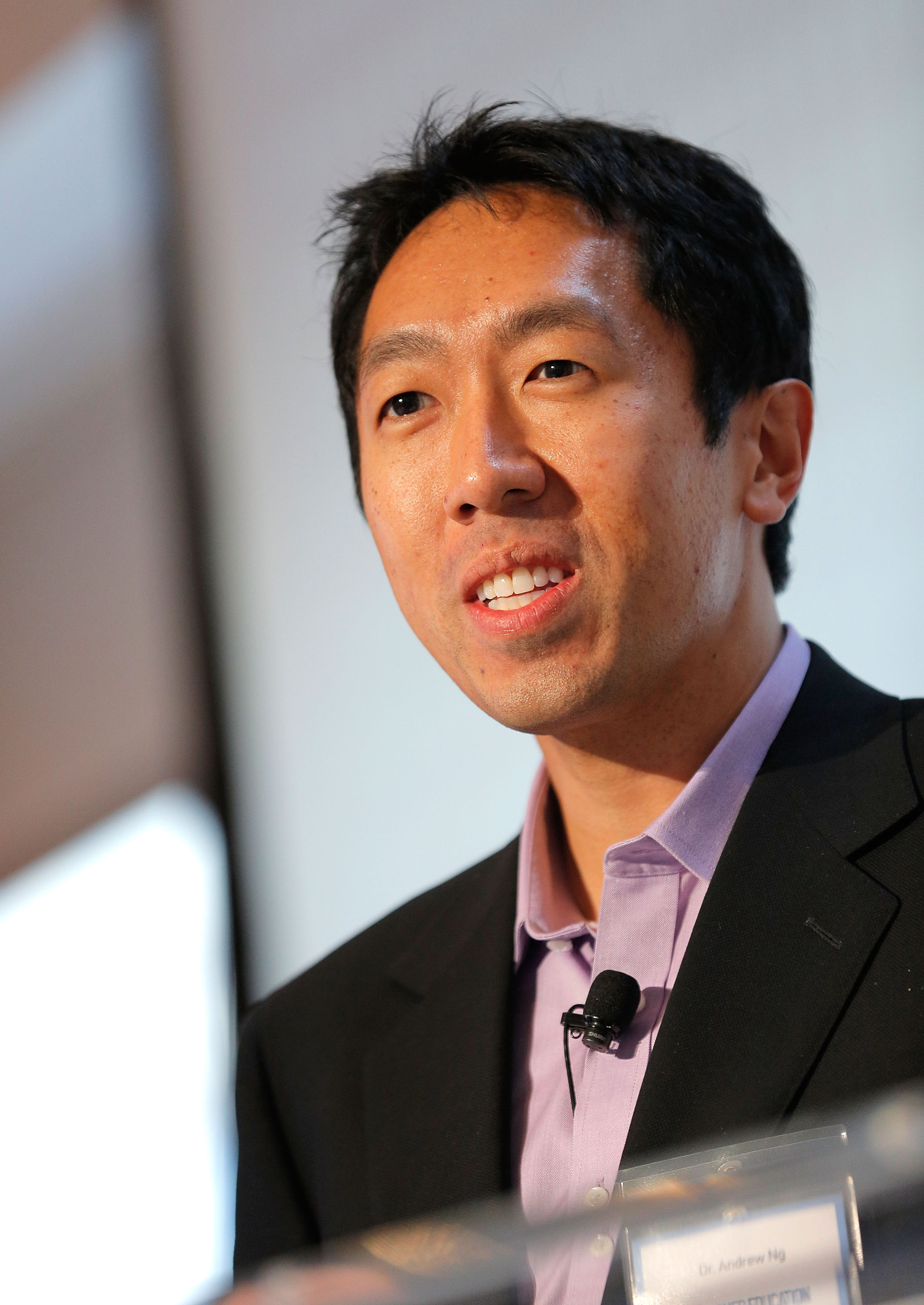Everyone Wants to Run an AI Company

As machine learning and AI become ever more powerful and useful, companies are scrambling to hire chief AI officers and to train their staffs to use the latest AI tools.
Andrew Ng, a well-known AI expert, will argue at EmTech MIT in Cambridge, MA, that making use of the technology requires a deeper change. To truly become “AI-first,” companies need to understand how AI can creep into their existing products and services and generate entirely new ones.
The annual MIT Technology Review event, which kicks off today, will explore how the latest technologies—including AI—are affecting businesses.
Ng has a great deal of experience in this area. After doing research on machine learning, and especially deep learning, at Stanford University, he created Google’s deep-learning-focused Brain project and then left to head up a similar effort at China’s leading online search company, Baidu.
Deep learning is roughly modeled on the way neurons in the brain learn, although it requires large quantities of training data and powerful graphics processing hardware. The technology has given computers an often human-like ability to recognize objects in images and words in speech, and companies are rapidly working to apply it in new ways.
Since leaving Baidu earlier this year, Ng has launched several new initiatives, including an effort to help train people in deep learning through a startup called Deeplearning.ai and a project that offers mental health services through an online chatbot.
EmTech MIT features other several prominent AI experts, some of whom are exploring ideas that could bring about the next big revolutions in AI.
Tomaso Poggio, director of the Center for Brains, Minds, and Machines, will talk about ideas inspired by neuroscience and cognitive science, which could help improve deep learning or lead to new ways for machines to learn more efficiently and flexibly.
MIT Technology Review’s Young Innovators Under 35 will be recognized at the event. These include Ian Goodfellow, a researcher in Google’s Brain division who has invented a powerful new way for machines to learn without human supervision. Companies are just starting to explore how this might be used to generate computer graphics and for compression, for example.
Follow our coverage here, and join the conversation on Twitter at #EmTechMIT.
Keep Reading
Most Popular
Large language models can do jaw-dropping things. But nobody knows exactly why.
And that's a problem. Figuring it out is one of the biggest scientific puzzles of our time and a crucial step towards controlling more powerful future models.
How scientists traced a mysterious covid case back to six toilets
When wastewater surveillance turns into a hunt for a single infected individual, the ethics get tricky.
The problem with plug-in hybrids? Their drivers.
Plug-in hybrids are often sold as a transition to EVs, but new data from Europe shows we’re still underestimating the emissions they produce.
Stay connected
Get the latest updates from
MIT Technology Review
Discover special offers, top stories, upcoming events, and more.